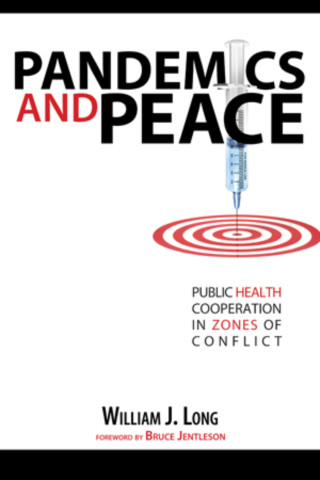PANDEMICS AND PEACE
Pandemics and Peace examines disease surveillance networks of the Mekong Basin, Middle East, and East Africa to answer two interrelated questions:
Why is interstate cooperation in an area of national vulnerability occurring among countries with a history of conflict?
How do public-private networks deliver transnational public goods (health), and what factors facilitate or impede effective and legitimate transnational governance?
“This excellent book is rich in information and insight, comprehensively conceived, with wise and timely policy suggestions. Long provides a detailed analysis of three regional organizations that cooperatively conduct infectious disease surveillance programs that function among countries with contentious relations in the Middle East, Southeast Asia, and East Africa. This is an admirable work based on solid research and a thorough use of relevant theories.”
Louis Kriesberg, Maxwell Professor Emeritus of Social Conflict Studies, Syracuse University
William J. Long
William J. Long is a professor in the Global Studies Institute and the Department of Political Science at Georgia State University. From 2011-2016, he served as Dean of the Georgia State’s College of Arts and Sciences. Previously, Dr. Long served as Professor and Director of the Sam Nunn School of International Affairs at Georgia Institute of Technology for ten years prior to joining Georgia State.
Dr. Long’s fields of scholarly interest include international cooperation and conflict resolution, international political economy, religion and politics, and comparative political theory. He is the author of four books and numerous articles and has received research and teaching awards from the United States Institute of Peace; the Council on Foreign Relations; the Hewlett, Pew, Sloan and MacArthur Foundations; the Fulbright Commission; the U.S. Department of Education; and the Commission of the European Union. Dr. Long is currently completing a book on comparative theories and practices of democratization and development entitled: “Tantric State: Dharma, Democracy and Development in Bhutan.”

